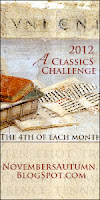The Color Purple By Alice Walker

Alice Walker is one of my favorite writers, but I had never read The Color Purple although I had seen the movie and the musical.
Alice Walker won the Pulitzer for The Color Purple in 1983. Alice Walker is a short, small boned African American woman who was born in Eatonton, Georgia in 1944. Her skin is the color of rich brown pork gravy. In addition to novels, Alice Walker has published books of short stories, poetry, essay and novels. After college Walker worked as a social worker in New York City. Click here and here to view her complete bibliography. This is Alice Walker's official biography. I could not get a copy of her handwriting but a photo of it is on the Emory University in Atlanta, Georgia Website for Alice Walker. Emory has housed her archives since 2009.
The novel begins with fourteen year old Celie being raped and impregnated twice by her father. Her father gives her children away and forces Celie to live with an abusive farmer who wanted to marry Celie's sister/best friend. The farmer has several children. Celie is so alone, ashamed and the only person she can talk to is God. She writes to God on a regular basis. The whole book is in epistolary form.
My favorite quote is from page 283 of the Harcourt 1992 hardcover edition. Celie is writing to her sister Nettie about something Albert says to her:
"Anyhow, he say, you know how it is. You ast yourself one question and it lead to fifteen. I start to wonder why us need love. Why us suffer. Why us black. Why us men and women. Where do children really come from. It didn't take long to realize I didn't hardly know nothing. And that if you ast yourself why you black or a man or a woman or a bush it don't mean nothing if don't ast yourself why you you here, period."
I really expected the book to have more explicit sex and negative views on men. When the book came out there was a lot of press from critics about black men being labeled as abusive. Most of the black men in the book were in a process of growth just as the women were. There was some sex, but not very much. Shucks. This is a book that was banned! Reading this book made it very clear that I have to read and think for myself in order to have an authentic opinion or criticism about a book or anything.
The book is about love, suffering, perseverance, transformation, hope and creativity. The characters were always trying to find a way to fit their naturally complicated selves into a world with set categories. It also has much more about Africa in it than the movie. Overall, I think the movie was very good compared to the book, but the book is always better.